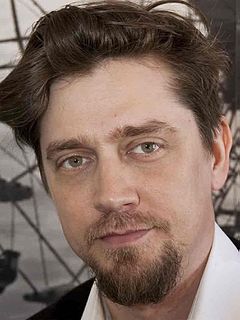Top 45 Quotes & Sayings by Andy Muschietti
Explore popular quotes and sayings by an Argentinian director Andy Muschietti.
Last updated on November 25, 2024.
At the beginning when you're writing and building the beats of the story, everything that you put in there seems very essential to the story. However, when you have the movie finally edited and it's 4 four hours long, you realise that some of the events and some of the beats can be easily lifted but the essence of the story remains intact.






















